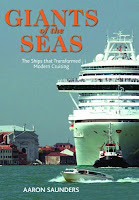Gianluigi Aponte - shipping magnate
Billionaire started with one cargo vessel
Gianluigi Aponte, the billionaire founder of the Mediterranean Shipping Company, which owns the second largest container fleet in the world and a string of luxury cruise liners, was born on June 27, 1940 in Sant’Agnello, the seaside resort that neighbours Sorrento in Campania. He and his wife, Rafaela, a partner in the business, have an estimated net worth of $11.1 billion, according to Forbes magazine. The Mediterranean Shipping Company has more than 510 container ships, making it the second largest such business in the world, behind the Danish company Maersk. MSC Cruises, meanwhile, is the fourth largest cruise company in the world. With offices in 45 countries, it employs 23,500 people, with a fleet of 17 luxury cruise liners. The business, which Aponte began in 1970 with one cargo vessel, has more than 60,000 staff in 150 countries. Read more…
__________________________________________
The Ustica Massacre
Mystery plane crash blamed on missile strike
An Italian commercial flight crashed into the Tyrrhenian Sea between Ponza and Ustica, killing everyone on board on June 27, 1980. The aircraft, a McDonnell Douglas DC9-15 in the service of Itavia Airlines was en route from Bologna to Palermo, flight number IH870. All 77 passengers and the four members of the crew were killed, making this the deadliest aviation incident involving a DC9-15 or 10-15 series. The disaster became known in the Italian media as the Ustica massacre - Strage di Ustica - because Ustica, off the coast of Sicily, was a small island near the site of the crash. After the fragments of the aircraft that were recovered from the sea were re-assembled, the Parliamentary Commission on Terrorism issued a statement in 1989 asserting that the DC9 had been shot down. Read more…
Giorgio Almirante – politician
Leader who tried to make fascism more mainstream
Giorgio Almirante, founder and leader of the neo-fascist Italian Social Movement, was born on June 27, 1914 at Salsomaggiore Terme in Emilia-Romagna. He led his political party for long periods from 1946 until he handed over to his protégé, Gianfranco Fini, in 1987. Almirante trained as a schoolteacher but went to work for the Fascist journal Il Tevere in Rome. In 1944, he was appointed Chief of Cabinet of the Minister of Culture to the Italian Social Republic, the short-lived German puppet state led by Benito Mussolini after he was thrown out of office as Italy’s prime minister. After the Fascists were defeated, Almirante was indicted on charges that he had ordered the shooting of partisans, but these were lifted. He set up his own fascist group in 1946, which was soon absorbed into the Italian Social Movement (MSI). Read more…
________________________________________
Giorgio Vasari - the first art historian
Artist and architect who chronicled lives of Old Masters
Giorgio Vasari, whose 16th century book on the lives of Renaissance artists led to him being described as the world's first art historian, died on June 27, 1574 in Florence. Born in Arezzo in 1511, Vasari was a brilliant artist and architect who worked for the Medici family in Florence and Rome and amassed a considerable fortune in his career. But he is remembered as much for Lives of the Most Excellent Painters, Sculptors, and Architects, from Cimabue to Our Times, a collection of biographies of all the great artists of his lifetime. The six-part work is remembered as the first important book on art history. Had it not been written, much less would be known of the lives of Cimabue, Giotto, Donatello, Botticelli, Da Vinci, Giorgione, Raphael, Boccaccio and Michelangelo among many others from the generation known as the Old Masters. Read more…
___________________________________________
Book of the Day: Giants of the Sea: The Ships That Transformed Modern Cruising, by Aaron Saunders
The cruise ship market is a multi billion-dollar industry with seven percent annual growth. What keeps the passengers coming in such huge numbers isn't the food, the ports or the entertainment. They come for the magnificent floating palaces themselves. In Giants of the Sea, the author showcases the most influential cruise ships of the last three decades beginning with Royal Caribbean's ground-breaking Sovereign of the Seas. When she was launched in 1988 she was the largest passenger ship constructed since Cunard's Queen Mary entered service some 48 years earlier, and her entry into service sparked a fiercely competitive building boom that continues to this day. The reader is taken aboard 30 of the most spectacular ships to reveal how their innovative designs changed the landscape of modern cruising. A sumptuous and fascinating book for all those drawn to the world of the modern cruise ship.Aaron Saunders is founder and author of From the Deck Chair, an online site dedicated to cruising and cruise ships. He also writes regularly about travel for the Vancouver Province newspaper, and contributes to the popular Avid Cruiser and River Cruise Advisor sites.





.jpg)


.jpg)


.jpg)

.jpg)


.jpg)
.jpg)




